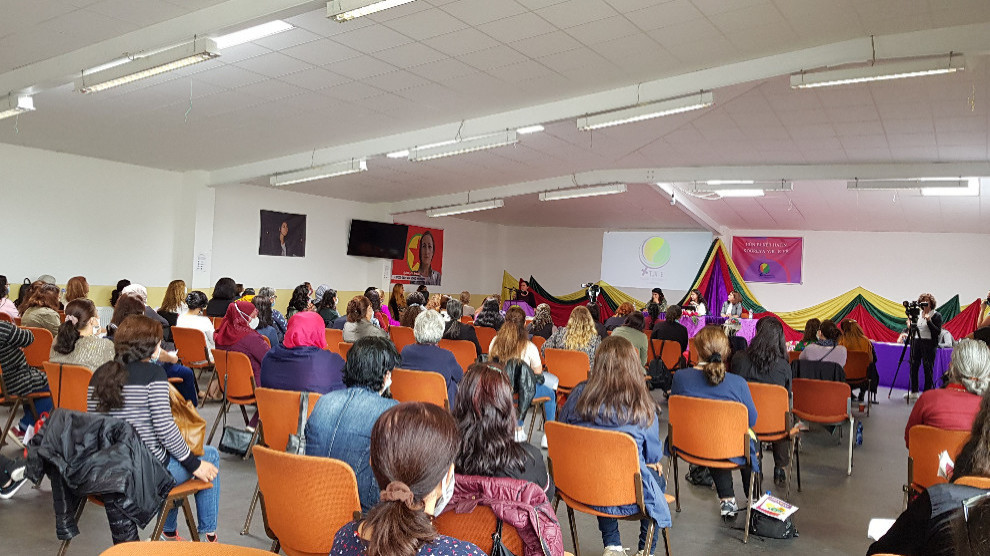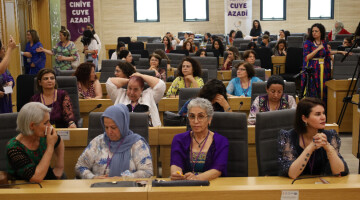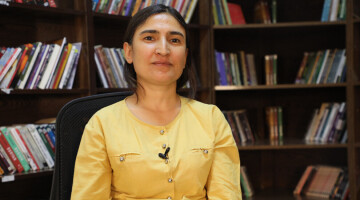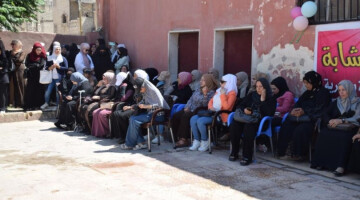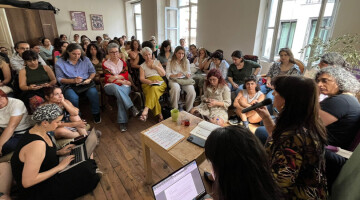The Association of Women from Kurdistan in Germany (YJK-E) held its third congress in Darmstadt city this weekend. Due to the Corona pandemic, participation was limited and attention was paid to the rules of distance. Nevertheless, delegates from all over Germany took part in the event.

The congress was dedicated to the freedom fighter Gülistan Aksoy (Nom de Guerre: Hêvî Gabar), who died in Berlin in July, and began with a minute's silence in memory of those who died in the women's liberation struggle. Afterwards the speakers were elected and the agenda was set. After the reading of the activity report, Zeynep Dersim, an activist of the Europe-wide women's umbrella organization TJK-E, held a speech in which she spoke about the current developments and pointed out the extermination campaign against Kurds that is being carried out everywhere. The policy of denial of the Kurdish existence, which has lasted for a hundred years, had reached a climax in the 18 years of the AKP government, she said. According to Zeynep Dersim, a very special policy is being conducted against young Kurds: "The suicide of Ipek Er after being raped by a Turkish sergeant is significant. The Turkish state wants to take revenge on the Kurds. Young women are cheated and brought down. The annihilation policy takes place on both a cultural and physical level. We must fight against these attacks in an organized way.”
The TJK-E activist also spoke about the Turkish invasion in Southern Kurdistan and described especially the struggle of the women's guerrilla as a "historic resistance that shows us how to fight".
After the introductory speech by Zeynep Dersim, the plenary discussed the existing problems and possible solutions. One delegate criticized that women too often reduced themselves to housework and their function as mothers. Narînxan Cizirî from the artists' association TEV-ÇAND called for Kurdish to be spoken with children as a matter of principle in order to keep the language alive. She further said: "Women are the teachers of life. We fight against the patriarchal way of thinking in the families, on the streets and in the mountains.”
Nurten Soran from Wuppertal pointed out that the organizing work has to be done differently: "If we do not visit the women, if we do not communicate with them and if we do not listen to their problems, there can be no developments. We can only become stronger if we remedy these shortcomings".
Meral Şimşek from the Viyan Women's Council in Mainz criticized that the organization in councils is not sufficiently practiced and the work is mostly done by only few people.

After the discussion, a film about the women's struggle and the activities of the YJK-E in the past year was shown. Subsequently, delegates of the "Movement of Young Struggling Women" (Tevgera Jinên Ciwanên Têkoşer, in short TEKO-JIN) founded in July took the floor and reported on the problems of young women and their work so far.
Finally, the work of the coming year was planned and an executive committee consisting of five women was elected. The congress ended with the performance of a music band from Darmstadt.

